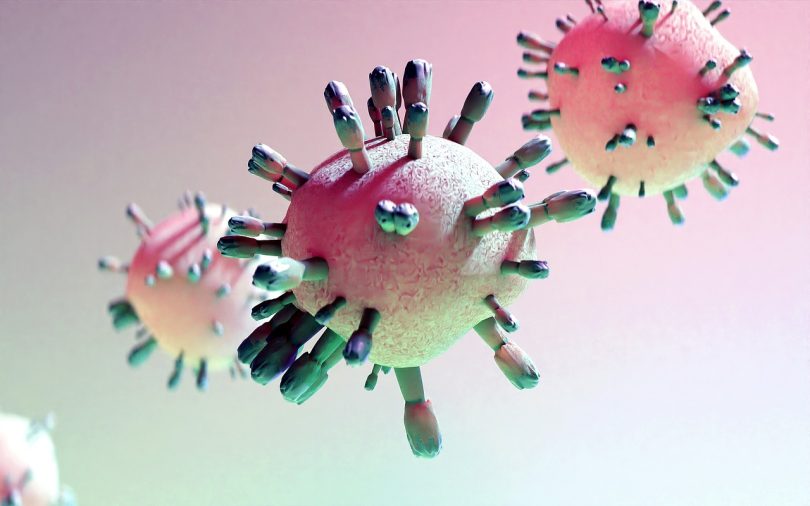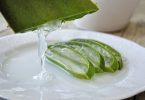Imagine a world where the invisible army of germs that surround us every day is no longer a threat to your health. Picture yourself navigating through life, confident in your ability to ward off illness and disease.
In this discussion, we will explore the power of natural methods in reducing germs and promoting better health. From adopting healthy hygiene habits to harnessing the potential of natural disinfectants, we will uncover the secrets to creating a clean and germ-free environment.
But that’s not all – we will also delve into the realm of nutrition and explore how it can boost your immunity.
So, are you ready to uncover the key to a healthier, germ-free you?
Understanding the Impact of Germs
To fully comprehend the significance of germs, it’s crucial to understand their impact on your health and well-being. Germs are microscopic organisms that can cause diseases and infections. They can be found everywhere, including on surfaces, in the air, and even inside your body. When you come into contact with germs, they can enter your body through your mouth, nose, or cuts on your skin. Once inside, they can multiply and spread, leading to illness.
Germs can cause a wide range of health issues, from mild to severe. Common illnesses caused by germs include the common cold, flu, and stomach viruses. These can result in symptoms like coughing, sneezing, fever, and diarrhea. In some cases, germs can lead to more serious conditions, such as pneumonia or meningitis.
It’s important to note that not all germs are harmful. Some germs are actually beneficial and help to keep your body healthy. These good bacteria can aid in digestion, boost your immune system, and protect against harmful pathogens.
To protect yourself from harmful germs, it’s essential to practice good hygiene habits. This includes washing your hands regularly with soap and water, covering your mouth and nose when you cough or sneeze, and avoiding close contact with sick individuals. By understanding the impact of germs and taking preventive measures, you can maintain your health and well-being.
Adopting Healthy Hygiene Habits
Start by incorporating simple, everyday habits into your routine to maintain good hygiene and reduce the spread of germs. These habits may seem small, but they can make a big difference in keeping you healthy.
First and foremost, remember to wash your hands frequently throughout the day. Use warm water and soap, and scrub your hands for at least 20 seconds to ensure that you remove any bacteria or viruses that may be hiding on your hands.
Additionally, make it a habit to cover your mouth and nose when you sneeze or cough. Use a tissue or your elbow, rather than your hands, to prevent the spread of germs.
It’s also important to avoid touching your face as much as possible. Your hands come into contact with many surfaces throughout the day, and touching your face can transfer germs into your body.
Lastly, make sure to regularly clean and disinfect frequently touched objects and surfaces, such as doorknobs, light switches, and cell phones.
Harnessing the Power of Natural Disinfectants
Incorporate natural disinfectants into your cleaning routine to further enhance your efforts in reducing the spread of germs and maintaining a healthy environment.
Natural disinfectants are effective alternatives to chemical-based cleaners, as they harness the power of nature to kill germs and bacteria.
One popular natural disinfectant is vinegar. Its acidic properties make it an excellent cleaner and disinfectant, especially for surfaces like countertops and floors. Simply mix equal parts of water and vinegar in a spray bottle and use it to clean and disinfect various surfaces in your home.
Another natural disinfectant is hydrogen peroxide. It’s a powerful oxidizer and can effectively kill bacteria and viruses. To use hydrogen peroxide as a disinfectant, simply pour it into a spray bottle and spray it onto surfaces like doorknobs, light switches, and bathroom fixtures.
Tea tree oil is also known for its antimicrobial properties. Mix a few drops of tea tree oil with water in a spray bottle and use it to disinfect surfaces and even as an air freshener.
Boosting Immunity Through Nutrition
You can strengthen your immune system through proper nutrition. Eating a balanced diet that includes a variety of nutrient-rich foods can provide your body with the vitamins, minerals, and antioxidants it needs to function optimally.
Start by incorporating foods that are known to boost immunity into your daily meals. Citrus fruits like oranges, grapefruits, and lemons are rich in vitamin C, which can help increase the production of white blood cells, the cells responsible for fighting off infections.
Other immune-boosting foods include red bell peppers, which are packed with vitamin C and beta carotene, and garlic, which contains compounds that can help stimulate the immune system. Additionally, yogurt and other fermented foods are great sources of probiotics, which can help promote a healthy gut and strengthen your immune response.
Don’t forget to include lean proteins like chicken, fish, and beans, as they provide the amino acids necessary for the production of antibodies. Lastly, make sure to stay hydrated by drinking plenty of water throughout the day.
Creating a Clean and Germ-Free Environment
To maintain a clean and germ-free environment, it’s essential to establish proper hygiene practices. Start by washing your hands regularly with soap and water for at least 20 seconds. Remember to clean your hands before and after handling food, after using the bathroom, and after coughing or sneezing.
It’s also crucial to keep your surroundings clean. Regularly clean and disinfect commonly touched surfaces such as doorknobs, light switches, and countertops. Use disinfectants that are approved by health authorities and follow the instructions for proper usage.
In addition to keeping your hands and surfaces clean, it’s important to maintain good ventilation in your living and working spaces. Open windows to allow fresh air to circulate and reduce the concentration of any potential airborne germs.
Lastly, remember to practice proper respiratory etiquette. Cover your mouth and nose with a tissue or the inside of your elbow when coughing or sneezing to prevent the spread of germs.
Exploring Natural Remedies for Germ Prevention
As we further explore maintaining a clean and germ-free environment, let’s now turn our attention to the natural remedies available for effectively preventing the spread of germs.
When it comes to germ prevention, there are several natural remedies that can help keep you and your surroundings clean and free from harmful bacteria.
One of the most well-known natural remedies is good old soap and water. Washing your hands regularly with soap and water is a simple yet effective way to eliminate germs.
Another natural remedy is vinegar, which has antimicrobial properties. You can create a natural disinfectant by mixing equal parts of vinegar and water and using it to clean surfaces.
Essential oils, such as tea tree oil and eucalyptus oil, also have antibacterial properties and can be used as natural disinfectants. Simply dilute a few drops of essential oil in water and use it to clean surfaces or as a hand sanitizer.
Additionally, hydrogen peroxide is a natural disinfectant that can effectively kill germs. It can be used to clean surfaces or as a mouthwash for oral hygiene.
Spreading the Word: Educating Others on Germ Reduction
Wondering how you can educate others on the importance of germ reduction? It’s easier than you think!
First, lead by example. Show your friends, family, and coworkers how to properly wash their hands, cover their mouths when they cough or sneeze, and avoid touching their faces. These simple actions can go a long way in preventing the spread of germs.
Next, share information. Talk to your loved ones about the importance of regular handwashing and maintaining good hygiene practices. Explain how germs can easily be transferred from person to person and how this can lead to illness. Provide them with facts and statistics to emphasize the seriousness of the issue.
You can also utilize social media platforms to spread the word. Create posts or share articles about germ reduction techniques and the benefits of natural remedies. Encourage your friends and followers to share the information with their own networks, multiplying the reach of your message.
Additionally, consider organizing educational events or workshops. Invite experts in the field to speak about the importance of germ reduction and provide practical tips. Encourage attendees to ask questions and engage in discussions to deepen their understanding.







